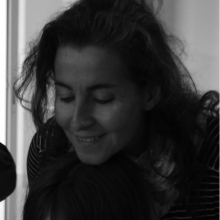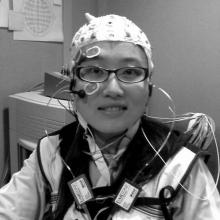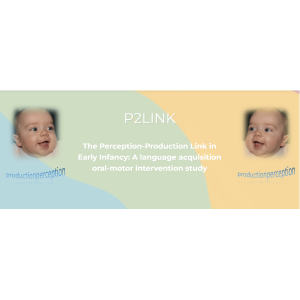LabFon - Laboratório de Fonética e Fonologia

The Phonetics and Phonology Lab (LabFon - Laboratório de Fonética e Fonologia) is a research group that was founded in the 1960s in the Faculty of Letters of the University of Lisbon. In 2005-2006 the group became a part of Onset (Center for Language Studies, FLUL) and in 2007 the group has joined the Center of Linguistics of the University of Lisbon. In line with the past history of the Lab, nowadays LabFon pursues its activities with three aims: (1) research (especially laboratory-phonology oriented), (2) education/training (at the undergraduate and graduate levels), and (3) services to the community.
In the last three years, two main lines of research have been developed: the study of frequency patterns in the phonology and phonetics of the language, and the study of the production and perception of prosody (prosodic phrasing, intonation, and rhythm).
Knowledge of frequency patterns has been shown to be crucial to the characterization of language usage, the establishing of lexical representations, or the emergence and development of grammar. Available frequency data for phonological units and patterns in Portuguese was scarce, non-replicable and corpus dependent. The line of research initiated in 2007 aimed at providing large-scale frequency information for phonological units and patterns from the feature to the prosodic word level, together with tools and databases, that allowed a description of Portuguese from the frequency perspective and enabled to test hypothesis about frequency effects in adult and child grammar, as well as language processing.
European Portuguese is one of the languages which is particularly interesting to the study of prosody and of the perception and production of prosodic properties. This is due to the fact that (i) European Portuguese is different from other Romance languages in terms of the properties it displays in various prosodic levels, such as the Prosodic Word or the Phonological Phrase, (ii) its intonation stands out from the rest of the Romance languages due to the scarcity of pitch accents and its overall prosodic phrasing, and (iii) it has a rare combination of syllabic and accentual rhythmic properties, within Romance. The presence of both Romance and Germanic-like properties in the prosody of the language raises challenging questions for language acquisition (under the prosodic bootstrapping hypothesis) and for language typology. The research developed at LabFon aims at tackling some of these questions in the broader context of cross-linguistic research, focusing on prosodic variation, the acquisition of prosody and the role of prosody in language development and language processing. To this end, the group set up in 2010 the Lisbon Baby Lab.
Membros
Investigadores integrados com doutoramento
Investigadores integrados sem doutoramento
Colaboradores
Concluídos
| Projeto | Data | Fin. |
|---|---|---|
| Horizon 21 - Horizon 21: Early language development in Down Syndrome | - | FCT
|
| EBELa - EBELa - Eyes and Brain: Early markers of Language Development | - | FCT
|
| InAPoP - InAPoP - Interactive Atlas of Prosody of Portuguese | - | FCT
|
| DEPE - DEPE - Development of Prosodic Structure and Intonation | - | FCT
|
| FreP - Frequency patterns of Phonological Objects in Portuguese: Research and Applications | - | FCT
|
| IntPhraRo - Intonational Phrasing in Romance |
| Recursos | Tipo |
|---|---|
| A lexicon of Child Directed Speech for European Portuguese from the FrePoP database - CDS_EP | Léxico |
| CDI-PE App: Aplicação online para avaliação de competências de linguagem e seu desenvolvimento - CDI-PE App | Ferramenta |
| Checklist Quantitativa para Autismo em Crianças Pequenas - Q-CHAT-10 | Ferramenta |
| Interactive Atlas of the Prosody of Portuguese Webplatform - InAPoP | Atlas |
| LumaLiDaOnLexicon | Léxico |
| MacArthur Bates CDI para o Português Europeu - Formas reduzidas | Base de dados |
| Questionário do bebé para o Português Europeu - CSBS DP | Ferramenta |
| Questionário para o Primeiro Ano de Vida - FYI | Base de dados |
| Romance Languages Database: Online database for intonational phrasing in Romance - RLD | Base de dados |
| Tools for the Transcription of Portuguese Prosody - P-ToBI | Ferramenta |
| Um léxico infantil para o Português Europeu - PLEX5 | Léxico |
. (2019). /l/ velarisation as a continuum in European Portuguese. In S. Calhoun, P. Escudero, M. Tabain & P. Warren (Eds.), Proceedings of the 19th International Congress of Phonetic Sciences (pp. 3763-3767). Canberra, Australia: Australasian Speech Science and Technology Association Inc. |
. (2019). Why tune or text? The role of language phonological profile in the choice of strategies for tune-text adjustment. In Sasha Calhoun, Paola Escudero, Marija Tabain & Paul Warren (eds.) Proceedings of the 19th International Congress of Phonetic Sciences (pp. 567-571). Canberra, Australia: Australasian Speech Science and Technology Association Inc. |
. (2016). Tune or Text? Tune-text accommodation strategies in Portuguese. In Proceedings of the Speech Prosody 2016. Boston: Boston University. |
. (2014). Onde ainda([j])há o fenómeno. Contributo para o estudo da inserção de glide entre vogais entrais. In A. Moreno, F. Silva, I. Falé, I. Pereira & J. Veloso (org.). Textos Selecionados do XXIX Encontro da Associação Portuguesa de Linguística. (pp. 419-436). Porto: APL. |
. (2013). Correlação entre fraseamento prosódico e distribuição de acentos tonais? Evidências da variação no Português Europeu. In Textos Seleccionados do XXVIII Encontro Nacional da Associação Portuguesa de Linguística. Lisboa: APL. |
. (2011). Para uma caracterização da distinção entre palavras prosódicas e clíticas com base em dados de frequência. In M. A. Costa, I. Falé & P. Barbosa (eds.) Textos Seleccionados do XXVI Encontro Nacional da Associação Portuguesa de Linguística (pp. 589-603). Lisboa: APL. |
. (2010). O Sintagma Entoacional na Gaguez – evidências do PE. In Textos Seleccionados. XXV Encontro Nacional da Associação Portuguesa de Linguística. |
. (2009). O tempo no tempo: um estudo do desenvolvimento das durações a partir das primeiras palavras. In Textos Seleccionados. XXIV Encontro Nacional da Associação Portuguesa de Linguística (pp. 281-295). APL/Colibri. |
. (2001). European and Brazilian Portuguese Rhythm: Acoustic and Perceptual Evidence. In P. Blanchard, R. Lima, L. Streit e R. Vilela Mendes (eds) The Sciences of Complexity. Workshop on Rhythmic Patterns, Parameter Setting and Language Change: Why and How. Zentrum für Interdisziplinare Forschung der Universitat Bielefeld. |
. (2004). The acquisition of the Prosodic Word in European Portuguese. In Second Lisbon Meeting on Language Acquisition. Lisboa. |
. (2023). Gestures-Prosody (a)synchrony: Temporal interaction between head and eyebrow peaks in statements and yes-no questions. In In R. Skarnitzl & J. Volín (Eds.), Proceedings of the 20th International Congress of Phonetic Sciences (pp. 4181-4185). Guarant International. Retrieved from file:///Users/CLUL/Downloads/ICPhS_2023_PROCEEDINGS.pdf |
. (2022). Amplitude envelope modulations across languages reflect prosody. In Proceedings of the 11th International Conference on Speech Prosody 2022 (pp. 688-692). http://doi.org/10.21437/SpeechProsody.2022-140 |
. (2022). Auditory and visual cues in face-masked infant-directed speech. In Proceedings of the 11th International Conference on Speech Prosody 2022 (pp. 639-643). http://doi.org/10.21437/SpeechProsody.2022-130 |
. (2023). Language-specific stress discrimination by European Portuguese-learning infants: An ERP study. In Proceedings of the 20th International Congress of Speech Sciences (pp. 426-430). Guarant International. |
. (2020). Looking for the edge: emerging segmentation abilities in atypical development. 10th International Conference on Speech Prosody 2020. ISCA. http://doi.org/10.21437/speechprosody.2020-166 |
. (2016). Infants' perception of native and non-native pitch contrasts. Speech Prosody 2016. ISCA. http://doi.org/10.21437/speechprosody.2016-142 |
. (2022). Proceedings of the 11th International Conference on Speech Prosody 2022. http://doi.org/10.21437/SpeechProsody.2022 |
. CDS_EP: A lexicon of Child Directed Speech from the FrePoP database (0;11 to 3;04) . Laboratório de Fonética, CLUL/FLUL. |
. PLEX5 – A production lexicon of child speech for European Portuguese / Um léxico infantil para o Português Europeu. Lisboa: Laboratório de Fonética CLUL/FLUL. |
. (2012). Romance Languages Database. Online database for intonational phrasing in Romance, (updated version, now including data from Northern European Portuguese) . Retrieved from http://rld.fl.ul.pt/ |
. LumaLiDaOn - version 2 (with prosodic labelling). Lisboa: Lab. Fonética, CLUL/FLUL. |
. LumaLiDaAudy - Audio Child Speech Database with phonetic transcription and prosodic labelling. Lisboa: Lab. Fonética, CLUL/FLUL. |
. (2008). LumaLiDaOn (version 1). Lisboa: Laboratório de Fonética da FLUL. Retrieved from http://labfon.letras.ulisboa.pt/lumalidaon.htm |
. LumaLiDaOnLexicon (versão 1). Lisboa: Laboratório de Fonética da FLUL. Retrieved from http://labfon.letras.ulisboa.pt/lumalidaonlex.htm |
. (2008). LumaLiDaAudyLexicon (versão 1). Lisboa: Laboratório de Fonética da FLUL. Retrieved from http://labfon.letras.ulisboa.pt/lumalidaaudylex.htm |
. (2018). Emerging word segmentation abilities in European Portuguese-learning infants: new evidence for the rhythmic unit and the edge factor. Journal Of Child Language, 45(6), 1294-1308+. http://doi.org/10.1017/s0305000918000181 (Original work published 2018/06/06) |
. (2012). Prosodic structure, constituents and their representations, in The Oxford Handbook of Laboratory Phonology. A. Cohn, C. Fougeron & M. Huffman. Oxford: Oxford University Press, Chapter, 11, 255-265. |
. (2007). Intonational Phrasing in two varieties of European Portuguese. Tones And Tunes, I, 265-291. |
. (2009). Phonetics and Phonology. Interactions And Interrelations. Current Issues In Linguistic Theory, 306. |
. (2017). Estudar o Desenvolvimento da Linguagem nos Bebés. Descubra As Diferenças (Electronic Journal), 26. |



























